Mosquito Dunks: OK for Frog/Toad Larvae?
steve1young
14 years ago
Featured Answer
Sort by:Oldest
Comments (33)
sleeplessinftwayne
14 years agosteve1young
14 years agoRelated Professionals
Bellflower Landscape Architects & Landscape Designers · Marina Landscape Architects & Landscape Designers · Elgin Landscape Contractors · Salem Landscape Contractors · Cerritos Landscape Contractors · Columbine Landscape Contractors · Federal Way Landscape Contractors · Forest Hills Landscape Contractors · Hilton Head Island Landscape Contractors · Kailua Landscape Contractors · Lexington Landscape Contractors · Long Branch Landscape Contractors · Los Banos Landscape Contractors · Winter Gardens Landscape Contractors · Bensenville Landscape Contractorsjpinard
14 years agosleeplessinftwayne
14 years agodigginitup
14 years agosleeplessinftwayne
14 years agoKathy Durrum
8 years agoPKponder TX Z7B
8 years agoDonna Lewis
8 years agobuyorsell888
8 years agoMike
8 years agotropicbreezent
8 years agolast modified: 8 years agolmjk1221
8 years agomickeyminnie minnie
8 years agomickeyminnie minnie
8 years agorita_lentz
6 years agocinwhi
5 years agoHU-96069199
3 years agolast modified: 3 years agojahil
3 years agoKathy Durrum
3 years agoTara
3 years agoKathy Durrum
3 years agoMarsha Hall
3 years agoMarsha Hall
3 years agoHU-477055775
2 years agolast modified: 2 years agoKathy Durrum
2 years agolast modified: 2 years agoAngela Chen
2 years agopbon
2 years agopbon
2 years agopbon
2 years agoM. NEWSOM
2 years agoAmanda Balladares
12 months ago
Related Stories

GARDENING AND LANDSCAPINGBid Bad Garden Bugs Goodbye and Usher In the Good
Give ants their marching orders and send mosquitoes moseying, while creating a garden that draws pollinators and helpful eaters
Full Story
TASTEMAKERSA Designer Edits — and Adds — for Dramatic Effect
Interior designer Nancy Braithwaite’s new book shows how it’s possible to edit rooms of all styles to create their best look
Full Story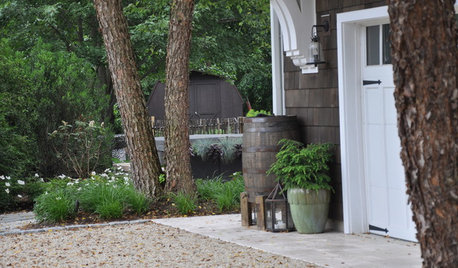
SAVING WATER6 Reasons Why You Should Save Your Rainwater Now
Collect and store during the rainy season so you’ll have water ready for irrigation when you need it
Full Story
GARDENING AND LANDSCAPINGPorch Life: Banish the Bugs
Don't let insects be the bane of your sweet tea and swing time. These screening and product ideas will help keep bugs at bay on the porch
Full Story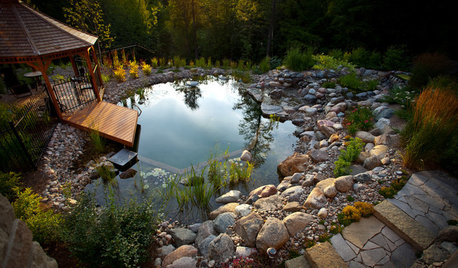
LANDSCAPE DESIGNNatural Swimming Pools: More Beauty, No Chemicals
Keep your skin and the environment healthy with a pool that cleans itself, naturally
Full Story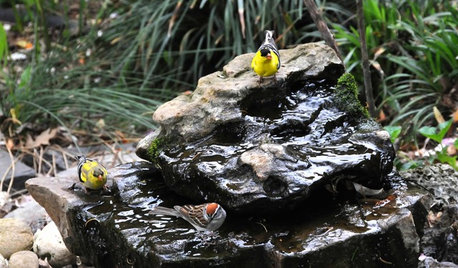
OUTDOOR PROJECTSBring In the Birds With a Homemade Bubble Rock
An avian expert from Southern Indiana shows how to make a burbling fountain that migrating birds will love
Full Story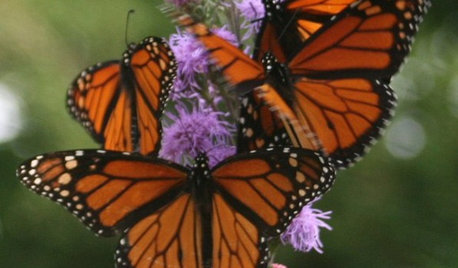
GARDENING FOR BUTTERFLIESButterfly Gardening: Delight the Eyes With Living Sculptures
Surprise and thrill with a garden that attracts magical winged creatures, bringing color, movement and life
Full Story
ARCHITECTUREHouzz Tour: Modern Plays Nice in a Historic Houston Neighborhood
Subtle modern details make this new home stand out from its elderly neighbors without disrespecting them
Full Story
FALL GARDENING7 Reasons Not to Clean Up Your Fall Garden
Before you pluck and rake, consider wildlife, the health of your plants and your own right to relax
Full Story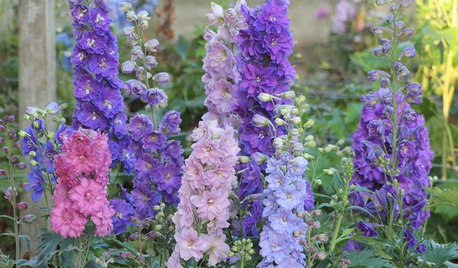
GARDENING GUIDES6 New Plant Varieties That Beat Out Their Parents
With better resistance and fewer demands, these garden beauties are worth a spot on your wish list
Full StoryMore Discussions







buyorsell888